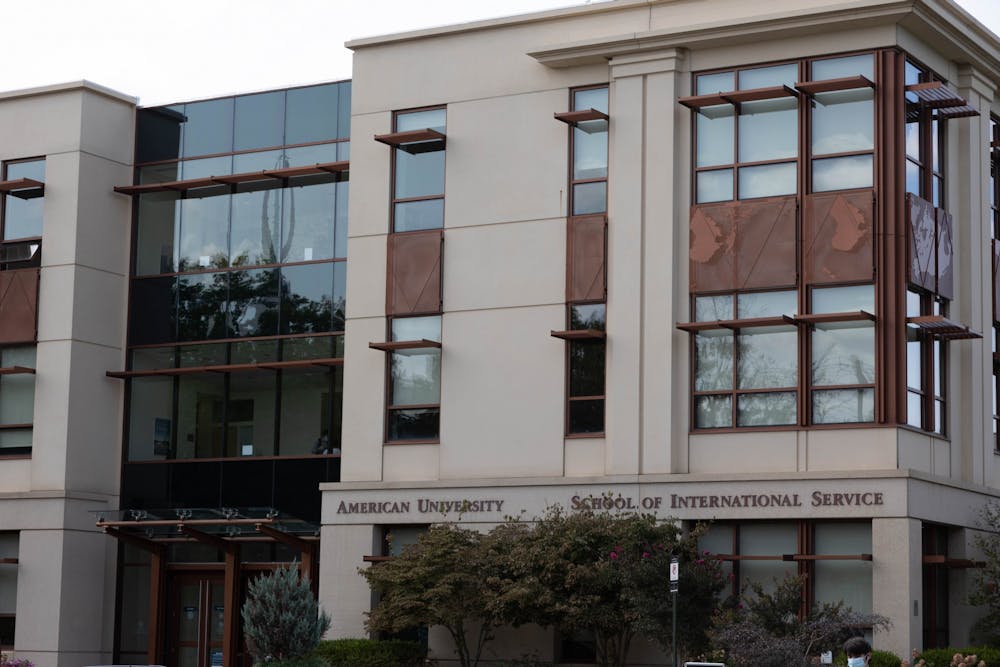A tenured professor recently filed a discrimination lawsuit against American University after he was suspended without pay in June 2020.
Quansheng Zhao, a professor in the School of International Service, claimed that administrators discriminated against him for being Chinese and 72 years old in the lawsuit filed Oct. 21.
The lawsuit claims that Zhao’s conduct was investigated twice; the most recent investigation found him guilty of assigning inappropriate administrative duties to graduate student employees and suspended him for two years without pay.
Zhao acknowledged in the lawsuit that he allowed students to access his AU computer password to assist him with certain tasks, but said that he did not violate any University policies. He is also accused of giving students work without compensation.
He is asking for a trial by jury and an unspecified compensation for a number of counts, including emotional distress, pain and suffering.
In 2014, Zhao was investigated by the University for mistreating his graduate assistants and found not guilty, but the dean of the SIS at the time issued a warning to him, the lawsuit states. The investigation was reopened in 2018 due to a number of complaints against him.
Court documents allege that the complaints against Zhao were motivated by his age and national origin, and that this evidence was ignored in the hearing process.
Zhao also alleged that by investigating him at all, the school was discriminating against him. The lawsuit stated that AU relies on graduate assistants who perform clerical work without compensation and that AU has not similarly disciplined other professors who gave administrative tasks and uncompensated work to their graduate assistants.
The lawsuit alleged that the University did not choose to compensate the students, which, Zhao said, proves that the institution is not actually concerned about whether students were paid, but simply wanted to find Zhao guilty of a violation.
The University justified its sanction on Zhao because he had been issued a warning in 2014, according to the lawsuit. However, Zhao claims that because he was not found guilty of any violations in 2014, the fact that he was given a warning at all was discriminatory.
The lawsuit stated that SIS Dean Christine Chin operated under the stereotypical assumption that Zhao was stuck in the past and unable to “act like an American.” She reportedly implied that Zhao’s overworking graduate assistants were the result of a cultural misunderstanding.
“On some level, this is cultural. But there is no excuse. There is no excuse that he doesn’t understand the culture,” Chin allegedly said.
Citing pending litigation, Chin declined to comment in an email to The Eagle.
The lawsuit also claimed that one of Zhao’s research assistants, Conor Gleeson, falsely accused Zhao of “invit[ing] low-level communist party officials” to an international conference at AU. This, “[expresses] a common negative stereotype of Chinese-born academics — that they all have connections with or allegiance to the Chinese Communist Party,” the lawsuit said. Gleeson allegedly made several untrue statements with stereotypical origins throughout the investigation.
Gleeson did not respond to multiple requests for comment.
According to the lawsuit, leadership at AU is aware that the SIS tends to discriminate against older and minority faculty.
“In the Spring of 2021, SIS engaged a consultant to conduct an assessment of the culture and climate of SIS in order to address recent tensions and a perceived fracturing within the SIS community. The consultant’s July 2021 report revealed that SIS suffered from a ‘divisive and toxic culture,’ and stated that a common word used by faculty and staff to describe the culture of SIS was ‘toxic,’” the lawsuit said.
In an email to The Eagle, Chief Communications Officer Matthew Bennett said the University cannot comment specifically on pending litigation, but said that the University has comprehensive policies for faculty investigations.
“It is important to know that American University holds faculty, students and staff to the highest standards of conduct, takes all allegations seriously, and provides a clear resolution mechanism that all community members agree to follow as a condition of employment and/or enrollment,” Bennett said. “We are committed to creating [a] safe and equitable workplace, including through policies and practices to prevent discrimination in hiring and employment and address any potential violations.”
Zhao and his attorney, Peter Whelan, did not respond to multiple requests for comment.





